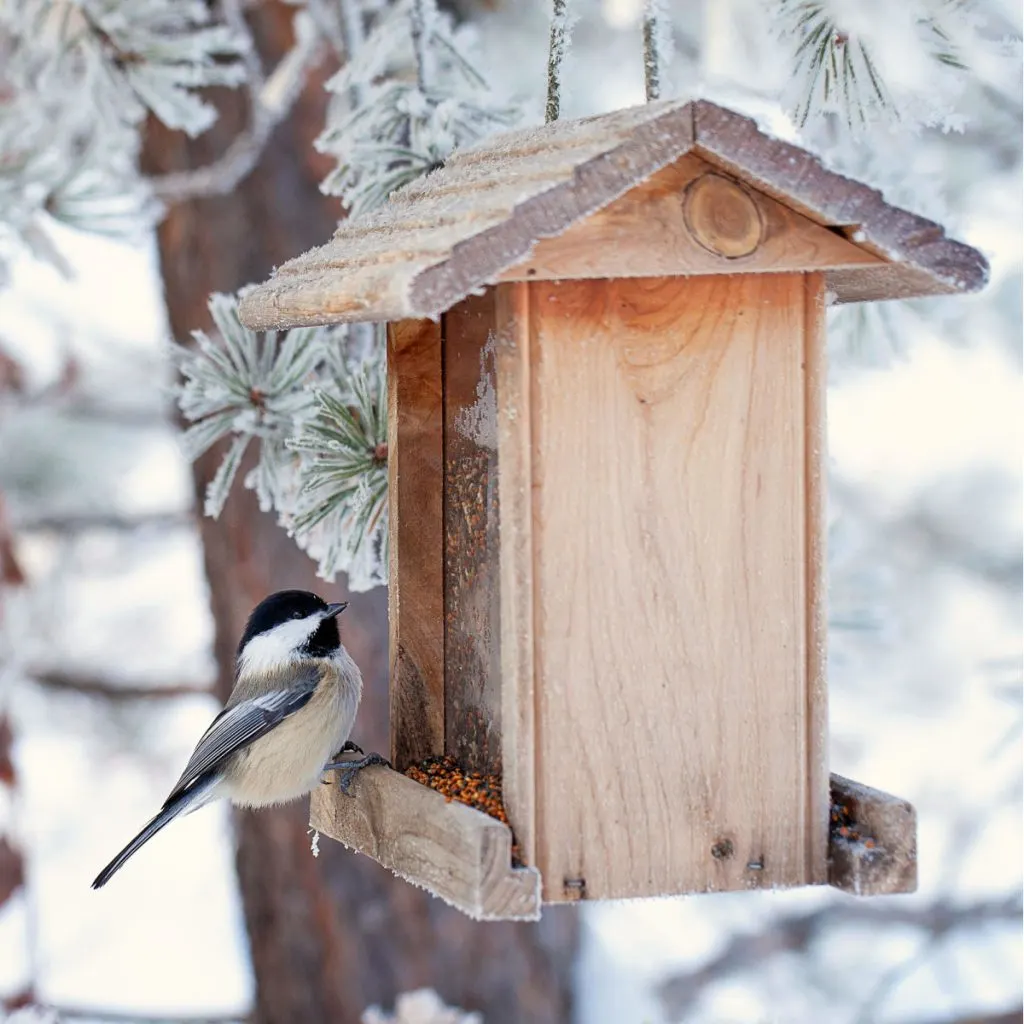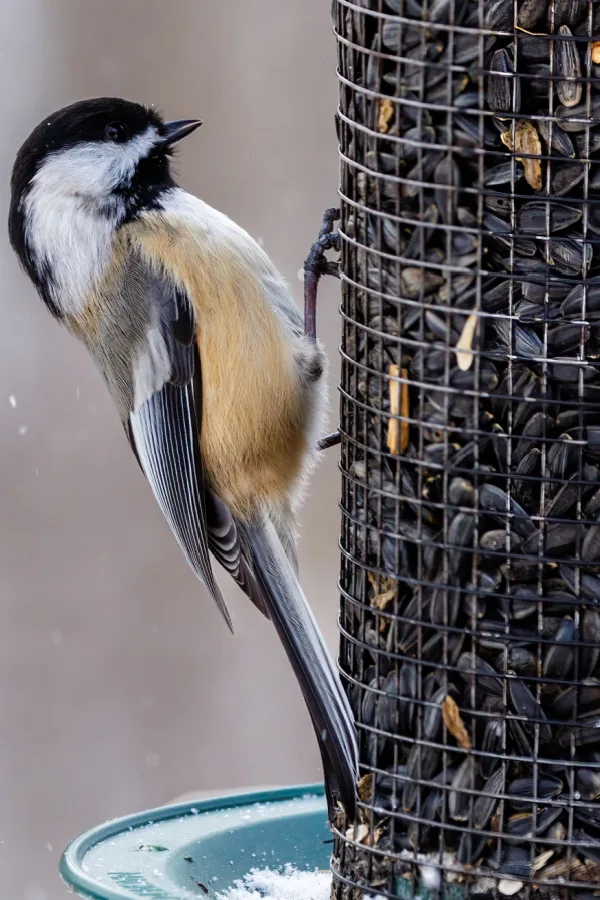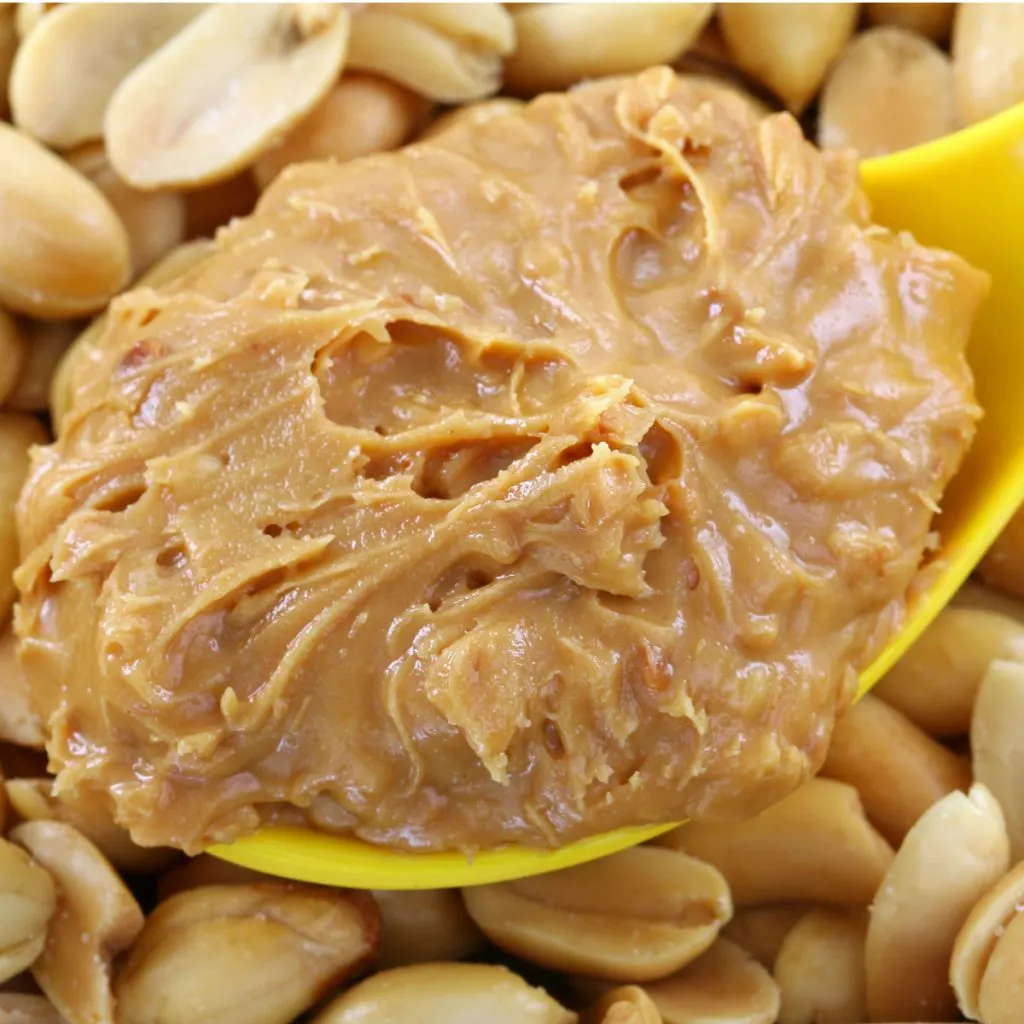One of the best ways to help chickadees survive the winter is by offering them the seeds and feed they love most – and that also happen to be packed with the high-calorie, high-energy nutrition these tiny, friendly birds need to thrive in the cold, frigid and bleak conditions wintertime can bring!
With their oversized heads and puffy bodies, chickadees are not only adorable to watch – they also have big personalities to go along with their looks. The talkative birds have a distinctive “chick-a-dee” call that gives them their namesake. In fact, their vocal calls to one another are actually what makes them a favorite of so many bird watchers and enthusiasts.
But one thing is for sure, beyond their cuteness and chirping, they can be incredibly helpful to gardeners. Especially when it comes to keeping insect populations under control in the spring, summer and fall.

Chickadees – The Perfect Way To Control Insects Naturally!
During the spring and summer, chickadees are able to consume as much as 35% of their body weight daily from insects. And when you consider most of those are flies, grubs, beetles, caterpillars or their larva, they can certainly be quite a big help to control the insect population around your property – which is exactly why helping them survive winter is even more important!
Unfortunately, during the winter months, finding food can become quite difficult for chickadees. But by simply providing them with a consistent supply of some of their favorite foods, you can more than help keep them alive through winter – and – of course, have them sticking around to help your garden and flowerbeds even more next spring!
How To Help Chickadees Survive Winter
Most chickadees are non-migratory birds. While they might travel a couple of miles during colder months when the insects and other food sources are reduced, they typically don’t stray too far from their original nests.
But they are also quite intelligent birds when it comes to sticking around for food. And if they find a consistent source, they are much more likely to call it “home” for good.

Chickadees favorite foods are seeds, berries, and insects. But chickadees are actually omnivores, and will resort to eating almost anything during the winter months to stay alive. In a natural setting, about 50% of their winter diet is made up of eggs, larvae, spiders, or hibernating insects.
These items are high in fat content and give the chickadees a lot of calories. The higher fat content helps to keep these petite birds warm enough to survive the cold winter nights. But once morning rolls around, they need to replenish those calories again.
Chickadees are constantly searching for food. They use their small beaks to pick out an individual seed from a pile and carry it off to a nearby branch. They then hold the seed with their feet while they pound the shell with their beak to open it.
What really makes chickadees unique is that they will also store food when they find a bit of excess. They will actually stash seeds and berries all around to eat later, much like squirrels. But unlike squirrels that often forget where these items are hidden, chickadees can remember the location.
When Winter Becomes A Problem – How To Help Chickadees Survive Winter
The issue with chickadees in the winter is that many of their natural food resources become scarce. As the cooler weather arrives, most insects either die or begin to hide away. And the fresh sources of berries, seeds and nuts that were so plentiful in the summer begin to dry up as well.
Listen To Our Podcast On Feeding Birds In The Winter!
Unfortunately, for chickadees, the slow up of food couldn’t come at a worse time. But this is exactly where feeding can help. By putting out a bird feeder with their favorite, high-calorie seeds and foods, you are helping to increase the likelihood that the chickadees will not only survive the colder months but actually thrive during them.
Even more, it makes it more likely for them to stick around in your landscape once spring rolls around to create the next generation of chickadees. A generation that will help to provide you with beautiful songs – and keep your insect population in check next spring and summer. It truly is a win-win situation!
The Best Seeds & Feed For Chickadees – How To Help Chickadees Survive Winter
Although chickadees will consume most seeds and feeds, there are three top choices they love the most – black oil sunflower seeds, peanuts, and suet. And all three just happen to be packed with a tremendous amount of fat and energy.
Here is a look at the three favorites, and how to best feed each of them to help chickadees cope with the frigid and tough conditions winter can bring.
Black Oil Sunflower Seeds
If you want to attract a big variety of songbirds to your property – including chickadees – then black oil sunflower seeds are the way to go! Black oil sunflower seeds have a higher fat content than other sunflower varieties, making them a favorite among birds.

In addition, black oil seeds are meatier and have thinner shells, which makes it easier for smaller birds like chickadees to crack open. They also help to provide chickadees with plenty of protein, fiber, calcium, vitamin E, potassium, and iron. Affiliate Product Link : Meadow Ridge Farms Black Oil Sunflower Bird Seed, 20-Pound Bag
It’s important to only put out enough black oil sunflower seeds that the chickadees can consume in a couple of days. Sunflower seeds have a high tendency to mold and spoil if they are left out in the elements for too long.
You can feed chickadees sunflower seeds in the shell or out. If you are looking to reduce the amount of mess around your bird feeders, shelled sunflower seeds are the way to go. One thing to keep in mind is that shelled seeds will need to be changed more often – and usually cost more than those in shells.
Peanuts – How To Help Chickadees Survive Winter
Peanuts have a high in fat content and provide chickadees with a quick and easy source of energy and calories. In addition, peanuts are easy for chickadees to store away for another day.
Do not offer chickadees peanuts in their shells. The tiny birds tend to steer clear of the larger in-shell options. Instead, offer shelled peanuts whole or even break them up into smaller, bite-sized pieces. This makes for quick grab-and-go meals, which is a chickadee’s preferred way to eat.

If you’re really looking to make them happy with a peanut treat, you can give them peanut butter. Either creamy or chunky peanut butter will work well, but the chunky gives them a few more nuts. Choose a brand that has little to no additives or extra ingredients included.
Organic peanut butter is the best choice, or you can create your own homemade peanut butter paste from grinding down peanuts.
Bird Suet – How To Help Chickadees Survive Winter
Another popular choice to feed chickadees during the fall and winter months is suet. Suet’s main ingredient is fat. Because of that, it is high in calories and makes an excellent meal for birds during the colder months.
Typically, suet contains a mix of grains, seeds or other treats within the fat. You can vary these treats to suit the type of bird you want to attract. In the case of chickadees, this would include black oil sunflower seeds, peanuts, mealworms, safflower seeds, millet, and/or cracked corn.
You can either purchase pre-made suet blocks or easily make your own. Product Affiliate Link : ST. ALBANS BAY SUET PLUS Suet Cake Variety Packs
Even More Ways To Help Chickadees Survive Winter
In addition to helping provide tasty treats and morsels to chickadees, there are a few other ways you can help keep these wondrous birds safe through the winter months.
If you happen to have ornamental grasses in your landscape – it’s best to keep them up over the winter months. First off, grasses provide protection and cover from winter and predators. But the seed heads of grasses are also a big food source for chickadees.
You can also provide chickadees with small birdhouses that have a 1-¼ inch entrance hole. Keep the birdhouse in an area with heavy natural coverings. They will use it for both shelter and warmth in the cold winter months.
Here is to helping give chickadees the food and protection they need to survive winter. And to having more of them around than ever next spring to help you keep insects in check in your landscape! For more winter bird feeding tips, check out our article: How To Feed & Attract Woodpeckers In Winter.
And if you’re looking for more tips on attracting chickadees, check out our article: How Chickadees Help Gardens – And How To Attract Them To Yours!
This Is My Garden
Follow Our Facebook Page For Great Gardening Tips And Advice! This Is My Garden Facebook Page
This Is My Garden is a garden website created by gardeners, for gardeners. Jim and Mary Competti have been writing gardening, DIY and recipe articles and books and speaking for over 15 years from their 46 acre Ohio farm. They publish three articles every week, 52 weeks a year. Sign up today to follow via email, or follow along!
